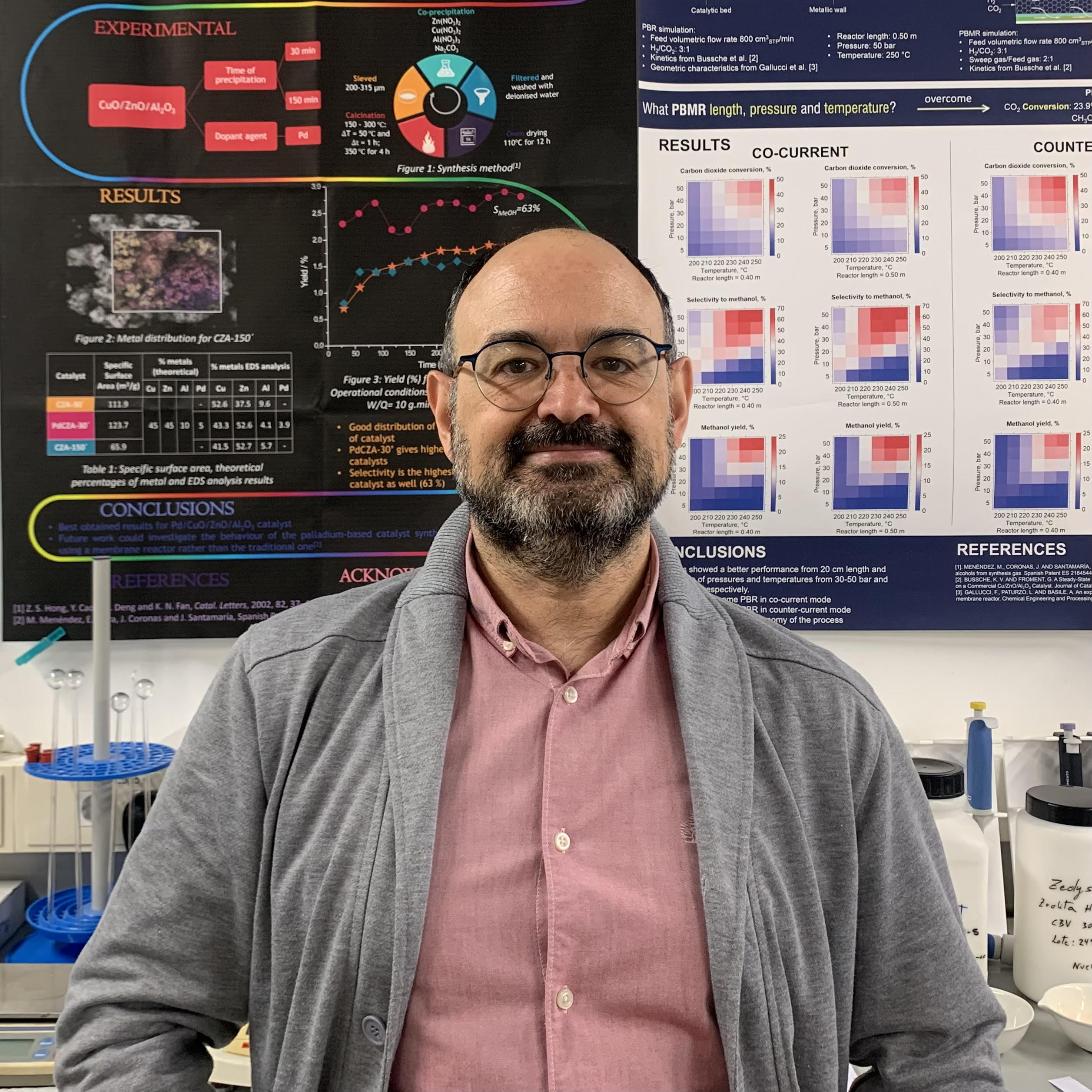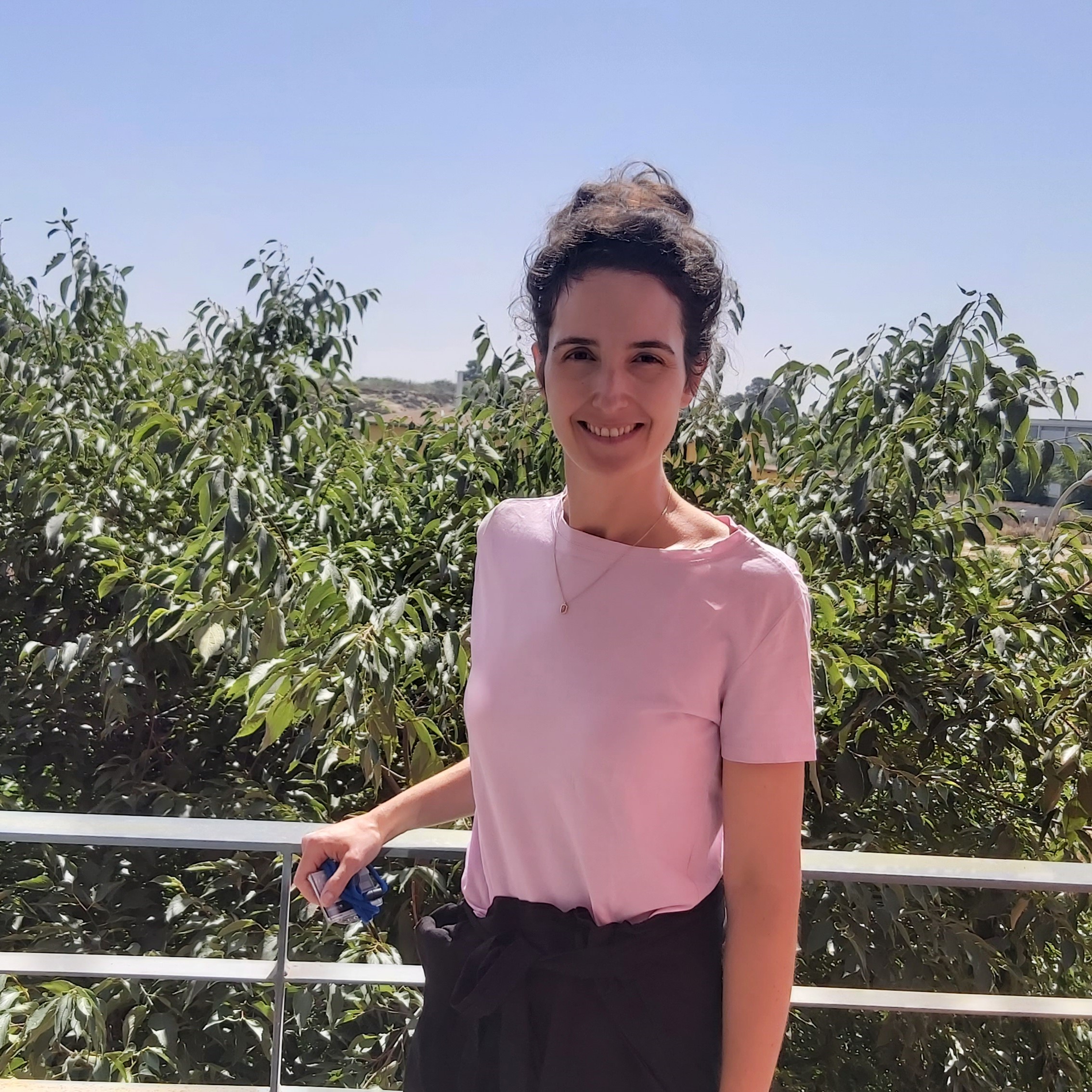
Why did you decide to go into research?
When one completes their studies, various alternatives are considered, such as focusing on the private sector or continuing with teaching. In my case, it was a bit serendipitous because, during those times, we had to undergo military service after finishing our degree. So, there was a need to do something during that waiting period until you were selected. I was fortunate to join the Department of Chemical Engineering, where there was an opportunity to collaborate on a project. I was delighted to continue learning and developing my skills. I enjoyed the experience immensely, and it seemed that they were also pleased with my work, leading me to undertake the thesis that eventually led to pursuing a doctorate.
So, you didn't always have a clear idea of what you wanted to dedicate yourself to?
It wasn't the path I initially expected to take; you could say I didn't decide to pursue research, but one thing led to another, I took that lane, and here I am. In the end, these are paths that unfold, and you have to choose one or the other. At each moment, intuition guides you – what might have more potential, what you like more or less – so you start making decisions. Life takes you along, a combination of self-management and the twists of fate.
How long have you been linked to the I3A and what would you highlight about the Institute?
After securing a Ramón y Cajal contract, I joined the Institute for Nanoscience of Aragón (INA). However, in 2010, I realized that my interests and preferences leaned more towards industrial processes than materials. This realization led me to see an opportunity at the I3A to continue working on projects or challenges more closely related to that aspect of Chemical Engineering.
The I3A provides substantial support in every sense – both from the people working in it and the opportunity to collaborate with other groups. It's such a diverse place that no one feels like an outsider. It presents itself as an excellent space for collaboration, meeting people, and sharing concerns. I must say I am very pleased to be part of this Institute.
In your research group, what are your most important lines or areas of work?
I belong to the CREG, which stands for the Catalysis and Reactor Engineering Group. Initially, we focused more on refinery processes, adding value to different fractions of petroleum through the design of new reactors or testing novel catalysts. However, in recent times, we have shifted our emphasis towards sustainable processes as the end of the petroleum era becomes more evident. In this context, we are using methanol as an energy carrier, seeking to synthesize it from non-contaminating sources such as hydrogen or CO2, which can be derived from renewable production. Thus, this compound can serve as a starting point for the synthesis of olefins, highly valuable on an industrial scale, including for the production of synthetic gasoline.
Also, my colleagues work with hydrogen, so we have a lot of interaction among ourselves, allowing us to carry out the development of new reactors that are more efficient and sustainable.
Do you have any ongoing projects that you would like to highlight?
Now, we are at the beginning of a project in the National Plan to design a new reactor that allows obtaining methanol more efficiently than using traditional methods. By developing new fluidized bed reactors, we can increase efficiency, resulting in economic savings and promoting integration into a continuous production system. In this line, we also have a proof-of-concept project, a further step toward subsequent scaling.
How do you see the future of your research area, and are there any trends or challenges that you find particularly interesting or important?
In the long term, the goal would be to integrate all these developments in the laboratory-scale reactor into a comprehensive process. This includes the generation, storage, and utilization of methanol as a raw material for various applications. For instance, integrating it from renewable hydrogen and CO2, producing methanol, and supplying it with a certain quality for other processes. Achieving the complete integration of the system is the future challenge.
What do you enjoy most about your profession? And what do you enjoy least?
What I enjoy the most is generating knowledge; obviously, we build on previous work, but being able to do something that others haven't done or have only glimpsed is professionally gratifying. You feel that you are creating something novel, something that hasn't been done before. Moreover, this feeling is heightened when combined with being a university professor and being able to transmit it to your students.
On the flip side, what I like the least is the management aspect, which is the heaviest part – having to fill out reports, requesting budgets for everything, etc. Fortunately, we have a lot of support at I3A, but even so, it remains a daunting and less rewarding task.
What would you say to anyone thinking of going into research?
CLOSE UP…
What did you study?: Bachelor of Science in Chemistry
A dream to fulfill: As I grew up in a very small village called Villadoz, in the Daroca region, I always saw the possibility of travelling as a challenge.
A trip: If I had to choose a dream destination, it would be San Francisco because I have always seen it in the films and it has always attracted my attention.
Hobbies: Due to my rural background, I like open spaces, going for a walk or sitting on a terrace and having a drink. Also sport, although I don't do it but watch it, is an entertainment that distracts me and takes my mind off my worries for a while.
A book: Perfume
A film: Dead Poets Society, Begin the Beguine o Blade Runner.
Favourite singer: Bruce Springsteen
How would you define yourself: A quiet person, who likes to interact with people, who has been overcoming his shyness and opening up to the world since he was a child, little by little. I like to enjoy the little things in life.
